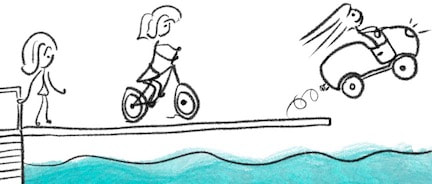 Fifteen years after I began writing and five years after actively searching for an agent, I landed at Red Fox Literary and am thrilled to announce that I am now represented by Sara Stephens! This is a dream come true for me. While there is no cookie-cutter method to this process, this list represents the strategies that worked for me. First, take a look at my path to acquiring an agent breakdown. 84 agent submissions 15 years writing 5 years subbing to agents 10 different manuscripts/12 if you count the major rewrites 6 nice rejections with helpful feedback 5 requests for more work 4 subs to agents at my current agency 3 oopsies (name snafus and misread guidelines - it does happen!) 2 calls 1 referral 1 OFFER! I hope this is encouraging! Hang in there and keep moving forward! 1. RESEARCH AGENTS Stay on top of which agents are open to submissions the genre you write by checking out sites such as Query Tracker, MSWL, agency websites, and agent interviews. Sometimes there are nuggets of information in interviews that are not readily available anywhere else. I also subscribed to professional magazines such as Publishers Weekly and Publishers Marketplace to track which agents were making deals regularly. 2. STUDY AND PRACTICE HOW TO WRITE A PITCH There are many samples online! Seek out the ones you like, study how the author crafted their sentences and emulate them using your own words. I recently began using a new formula based on advice from another agent (the name escapes me). It goes like this: Character is X until Y which leads to Z. I like this model because if I can fit my pitch into one or two sentences, it helps me leave out unnecessary words and zero in on the theme of my story. Here is an example of my pitch that caught the attention of my agency. As Susumu begrudgingly learns the secrets of koji-making, the magic ingredient in miso, mounds of rice capture his imagination and take him to play in the snowy mountains. But the demanding process works its magic in other ways, creating a delicious transformation between Papa and Susumu—full of umami! Don't forget to show the voice of your manuscript when writing your pitch! 3. STUDY AND PRACTICE HOW TO WRITE A QUERY Yes, they matter to some agents. Unfortunately, we don't know which agents skip the first page and go right to the manuscript. Again, use a mentor text. Find one online that you think sounds good. Study. What did the author write about in the first, second, and third paragraph? I follow a format similar to this: Paragraph 1: Include one or two sentences about how you became aware of the agent, essential details such as title, genre, word count, and intrigue the agent with comps. Paragraph 2: The pitch. Paragraph 3: Bio. Look at how the author of your mentor query letter crafted their sentences. Vary sentence structure. Trim any words that don't matter - just like you do with your picture book manuscripts! When writing comps, include why you chose them and what inspired your manuscript. State why your story matters. Here is how I wrote out my comps and inspiration. And don't forget to keep it as concise as you can. Children ages 4-8 who enjoy the relationship in Drawn Together (Le), the imagination in The Paper Kingdom (Ku), and the world-building in A Different Pond (Phi), might like this story. STEM backmatter (170 words) is included for kids interested in science. Research into my mother’s youth working for her father in Japan opened up a conversation about the process of miso-making and inspired this manuscript. Some time has passed since I wrote this paragraph, and I still see ways to improve it. Always revising; a writer's work is never done! ;) 3. JUMP RIGHT IN This suggestion may be controversial. But I believe that you can't wait forever to test the waters. It's like having a baby - you never feel quite ready. I think it's okay to start submitting after you've polished your manuscript. Chances are- and we've all been there - we hit that send button, and a few days later, we realize the manuscript wasn't as polished as it could be, and the query letter could use improvement. That's okay. It is part of the process. Next time you will have knowledge you didn't have the first time. And so it goes ... 4. SUBMIT AND FORGET I am not a fan of nudging, but some writers do. Some agents say it's okay to nudge, but I didn't do this unless I had a reason. (a publishing deal) I found the best method for me was to keep looking at what I should be doing next. 5 CREATE A SPREADSHEET OF AGENT CONTACTS This is a very important step. You want to be organized and keep a list of who you submitted to, complete with dates, agency info, and notes if you do or do not want to sub to particular agents in the future. Sometimes an agent may not respond to the manuscript you submitted, but they will invite you to submit to them in the future. You will want to document this information! 6. ACCEPT OPPORTUNITIES Attend conferences! Now that many are happening on Zoom, targeting the ones that will benefit you is easy. Research the agents that will be attending. Do they seem like a good fit for your manuscript? Are they usually closed to submissions but will allow conference attendees to submit for a period of time? Are they offering critiques? Take the opportunities to get your work seen! Participate in pitch events! You never know which agents might be lurking on Twitter and will want your story. Some of the popular events are #pbpitch, #pitmad, and #dvpitch. 8 JOIN MULTIPLE CRITIQUE GROUPS AND POLISH THREE MANUSCRIPTS Life gets busy as you get close to representation. You should have three; ideally, four manuscripts polished in the event an agent asks to see more work - and they will! At this point, you will need more than one critique group. Having four stories in rotation with constant revisions will require more eyes on them. You also want fresh eyes to read your stories and may need a quick turnaround for the agent. Seek out other groups. If you can't find one, consider private groups such as 12x12 or Sub It Club Critique Partner Matchup to get quick feedback. 9 BE PROFESSIONAL, AND DON'T LET MISTAKES SLOW YOU DOWN You will hear that the agenting/publishing industry is a subjective business. This is absolutely true. Rejection brings up insecurities and feelings of inadequacy. Do your best to scream your disappointments in the pillow, not online or to the agent. Maintain public composure and professionalism! Online tantrums will land you in a long timeout! When making a submission mistake, send a quick apology and/or ignore it. There usually is nothing you can do about it. Given a few months, while you're still fretting about it, they will have forgotten. So, learn from it and move forward. 10 DON'T GIVE UP! If you need encouragement, refer back to my path to acquiring an agent breakdown at the beginning of this post. You will get rejections, lots of them. But you won't get an agent if you don't try. So if you want it, don't give up! I wish you success on your path to acquiring an agent! Would you please comment below if this post was helpful or if you have a question?
0 Comments
Leave a Reply. |
Path To PublicationArchives
By Date
July 2024
|


 RSS Feed
RSS Feed
